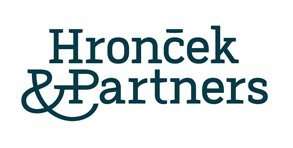The US startup ecosystem dominates the world not only in terms of innovation, but also in terms of growth speed, access to capital, and a mindset that tolerates failure. While Europe is not lagging behind in talent or infrastructure, bureaucratic obstacles and conservative thinking prevent it from reaching its full potential.

Over the past two decades, we have witnessed the rapid growth of the global startup ecosystem, with two superpowers – the United States and the European Union – becoming natural points of comparison.
Startups are no longer just technological toys for "geeks," but legitimate players influencing labor markets, investment flows, and political debates.
However, the legal, economic, and mental mindset of the societies in which these companies are created fundamentally influences their chances of success. It is in this comparison that the US emerges as the clear winner.
American capital, European bureaucracy
American startups enjoy extremely favorable conditions. Access to venture capital is quick, and investors do not need to be convinced that risk is a natural part of the game. A financial round worth millions of dollars can take place in a matter of days, sometimes even hours.
The Silicon Valley culture has created an environment where failure is not shameful – on the contrary, experience with failure is considered a valuable investment in the future.
History and the present offer concrete examples: Tomáš Baťa, Henry Ford, Reid Hoffman (founder of LinkedIn), Ben Silbermann (founder of Pinterest) and Stewart Butterfield (founder of Slack) – all faced failures, but these became a springboard for their later success.
Europe, on the other hand, seems like a bureaucratic apparatus that tries to support innovation but often inadvertently stifles it. Differences in national legislation, complicated cross-border operations, slow access to capital, and a limited willingness to take risks are factors that slow down the speed and courage of European founders.
Grants such as Horizon Europe and EIC Accelerator are available, but obtaining them involves complex administration and long waiting times. In the meantime, American competitors are launching products and building market share. In Europe, however, the capital market must develop – we need to get the capital that is available for local projects into circulation.
Starting a business is not equally easy everywhere
Starting a business in the US is a matter of a few clicks. Delaware has become a symbol of legal simplicity – companies are established there not only by Americans, but also by entrepreneurs from all over the world. In Europe, it is not that simple.
Although Estonia is an exception with its e-Residency concept, in most European Union countries, start-ups are faced with notaries, trade licensing offices, stamp duties and various legal requirements.
Even after a company is established, the situation is no easier – hiring someone means committing to a number of legal obligations, and terminating an employment relationship is often a long process.
Labor law also plays an important role in the startup world. In the US, the "at-will employment" model prevails, allowing companies to respond quickly to changing situations. The European model is much more rigid, especially in countries such as Germany and France, where the law strongly protects employee rights.
While this promotes stability, it takes away flexibility from startups. In an environment where the market changes from week to week, the ability to respond slowly to changes can be the deciding factor between success and failure. European countries need to make fundamental changes in this area if they don't want to be left behind by the rest of the world.
Thinking based on courage or caution
However, it is not just about legislation or capital. The mindset of founders and investors is also important. In the US, entrepreneurship is romanticized—children grow up on stories of entrepreneurial heroes. From an early age, they are encouraged to think in terms of "what if it works."
In Europe, on the other hand, a mentality of caution and certainty prevails. Failure is often seen as a stigma, not an experience. Investors are therefore more conservative, and startups are more likely to consider how to minimize losses than how to maximize growth.
This difference has deeper historical roots. Since its inception, American society has been built on individualism, freedom, and entrepreneurial spirit.
Europe has gone through centuries of centralized states, wars, and social models that have shaped institutional and personal caution. Opportunities exist on both sides of the Atlantic, but they are perceived in diametrically opposite ways.
Several surveys conducted in Europe, including Slovakia, confirm that people's greatest concerns are related to unemployment and loss of security. In contrast, freedom and independence are among the highest-rated social values in the US.
This difference in values has a direct impact on the level of entrepreneurial courage and willingness to take risks. Individualism, of course, has its dark side, but teaching people to take individual responsibility for their lives is essential – otherwise, alibism and decline set in.
The current trends of populism and distortion of facts, which are unfortunately becoming the norm today, do not help the development of entrepreneurship either.
Without financial literacy, we will not be able to maintain our innovative potential
A fundamental problem in Europe, and especially in Slovakia, is a lack of financial literacy, which does not start where it should – in schools. Despite several attempts to include financial education in the curriculum, implementation remains minimal.
Young people leave school with knowledge of 18th-century history but without the ability to read a bank statement or distinguish between fixed and variable interest rates. If we want to have more entrepreneurs, investors, and financially confident people, we need to start in childhood.
The startup ecosystem is a litmus test for society. It shows the extent to which we support courage, curiosity, and responsibility. The United States is built on trust in the individual, dynamism, and a willingness to take risks. Europe offers stability, protection, and quality, but if it wants to compete effectively, it will have to rethink not only its laws but also its mindset.
However, I do not want to glorify the American system – it too has its limits and problems. Europe has many positive values and mechanisms on which to build. But if we want to move forward, change will be inevitable.
And that is where the biggest challenge lies. Not in how to change legislation, but in how to change our idea of what success means and how people should take responsibility for their lives and do something about it. Not everyone is cut out for business, but everyone can contribute to society with the best they have to offer – without waiting for someone else to do it for them.
Entrepreneurship was never my primary goal, but it probably came naturally to me and life led me there. However, it would never have been successful without responsibility, continuous learning, hard discipline, but also a willingness to take risks and leave my comfort zone.
